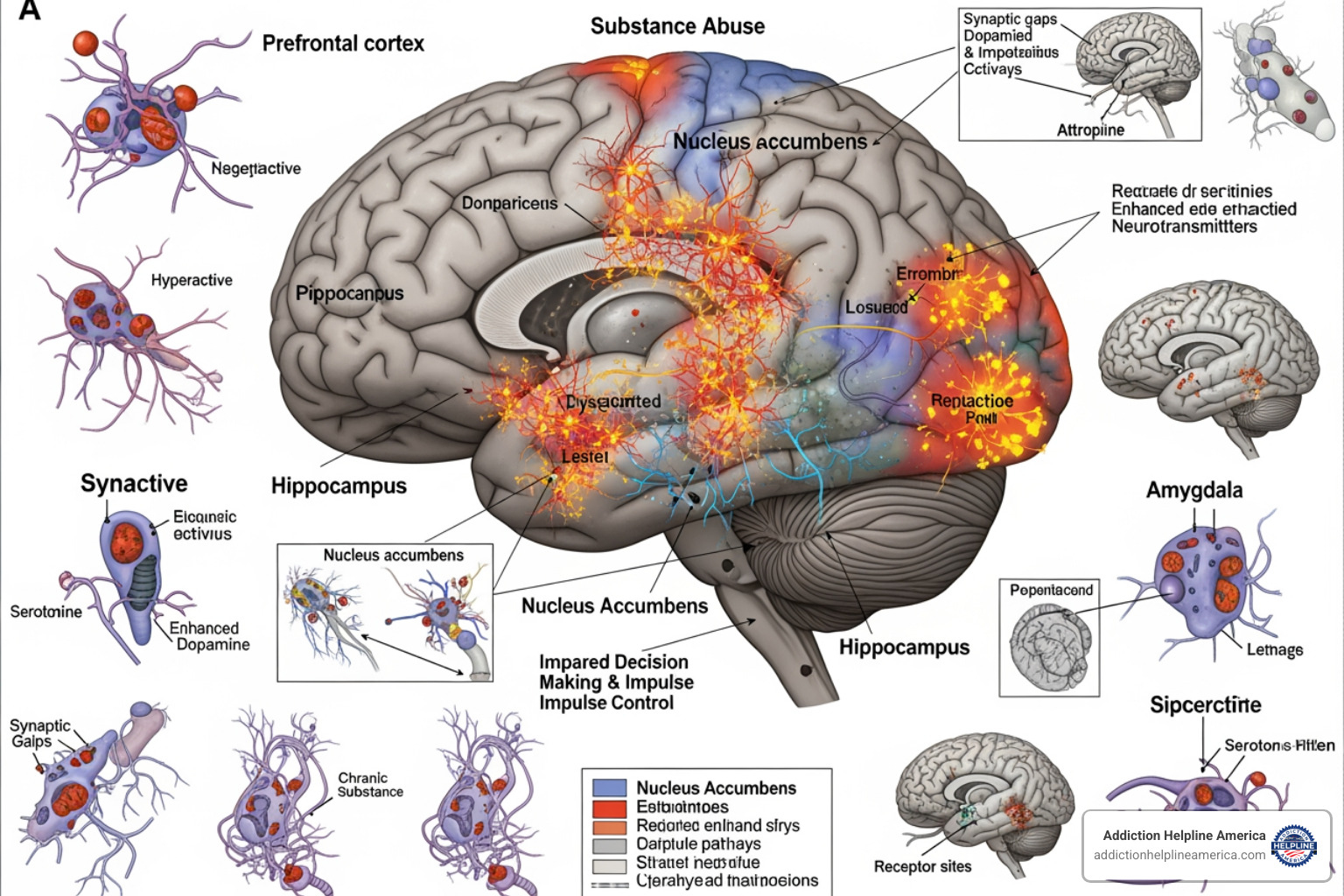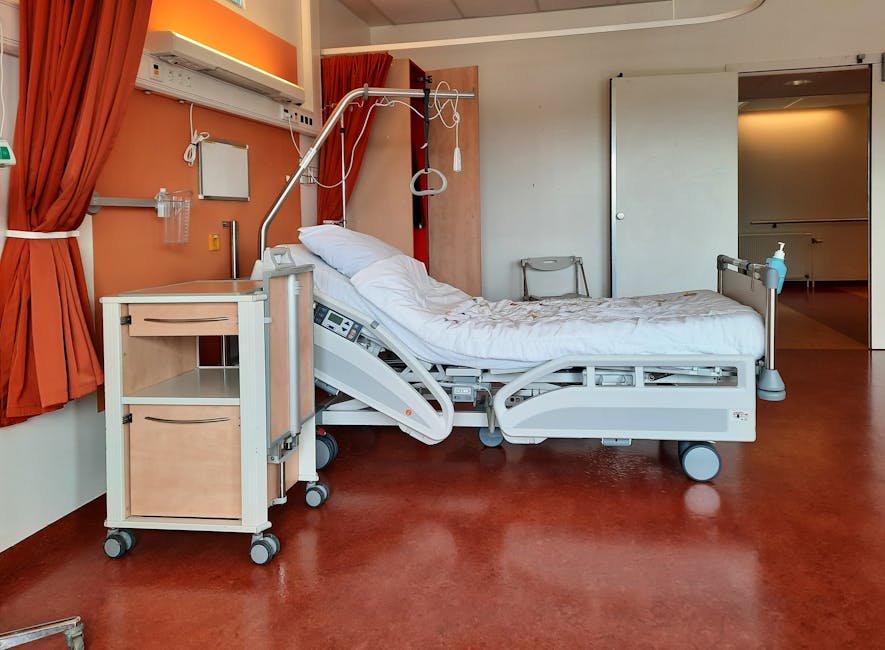
Why Finding the Right Medical Detox Center Matters
Medical detox centers near me offer medically supervised withdrawal management for individuals with substance dependence. If you need immediate help, here’s a quick overview:
Quick Guide to Medical Detox Centers:
- What they do: Provide 24/7 medical supervision during withdrawal from drugs or alcohol.
- How long it takes: Typically 5-10 days, depending on the substance and individual health.
- What to look for: State licensing, accreditation, experienced medical staff, and aftercare planning.
- How to find one: Use SAMHSA’s Treatment Locator or call the National Helpline at 1-800-662-HELP (4357).
- Cost: Varies widely; many facilities accept insurance, Medicaid, and Medicare.
Seeking help for addiction takes courage. Understanding what medical detox involves can make this critical first step less overwhelming.
Medical detox is the process of safely removing substances from your body under medical supervision. It addresses the physical side of addiction by managing withdrawal symptoms that can be uncomfortable and sometimes life-threatening. While detox isn’t a cure, it’s the essential foundation for recovery. It stabilizes you physically so you can begin addressing the psychological aspects of addiction.
At Addiction Helpline America, we connect individuals and families with appropriate medical detox centers and other treatment resources. Our team is here to guide you through your options when finding the right facility feels urgent and confusing.
This guide covers what happens during detox, how to find reputable centers, what questions to ask, and what comes next. You’ll learn how to verify credentials, understand costs, and build a plan for lasting recovery.

Understanding Medical Detox: The Critical First Step
When you use drugs or alcohol regularly, your body adapts, creating a physical dependence. When you stop, your body protests with withdrawal symptoms that can be uncomfortable and even dangerous. This is why medical detox centers near me exist: to provide a safe, controlled environment where professionals can guide you through this challenging phase.

The stakes are real. In 2021, Massachusetts alone lost an estimated 2,031 people to opioid overdoses, many of whom might have been saved with medical intervention during withdrawal. Without professional support, detoxing can be fatal.
What is Medical Detox?
Medical detox is medically-supervised withdrawal. You receive 24/7 care from doctors and nurses who monitor your vital signs and manage complications. A safe, structured setting removes you from triggers, while medications ease severe symptoms, making the process safer and more tolerable. This approach treats addiction as the disease it is, requiring professional medical intervention.
Why is Detox So Important for Recovery?
Unsupervised withdrawal can be life-threatening. This is a medical fact, not a scare tactic.
- Alcohol and Benzodiazepine Withdrawal: Can trigger seizures and a condition called delirium tremens (DTs), which carries a significant mortality risk.
- Opioid Withdrawal: While not typically fatal, it is so physically miserable that many people relapse just to make it stop. This relapse is especially dangerous, as overdose risk is highest when tolerance has dropped.
Medical detox prevents these dangers and reduces the chance of relapse. By managing symptoms, it provides the medical stability needed to focus on the psychological work of recovery. You can’t learn coping skills when you’re in physical agony; detox clears the way for you to engage in treatment.
Call Now – Your Journey to Recovery Begins Today!

Take the first step towards a healthier life! Call now to connect with our compassionate team and start your recovery journey today. Your path to healing awaits!
Our recovery specialists are available 24/7 to provide support, and all calls are confidential and free. Reach out anytime – we’re here to help!
Medical Detox and the Recovery Journey
Detox is not a cure; it’s the first chapter. It addresses physical dependence, but the psychological and behavioral aspects of addiction remain. The table below shows how detox fits into the broader continuum of care.
| Feature | Medical Detox | Inpatient Rehab | Outpatient Programs (PHP, IOP) |
|---|---|---|---|
| Primary Goal | Safe, medically supervised withdrawal from substances. | Intensive, structured treatment addressing psychological aspects of addiction. | Flexible treatment allowing individuals to live at home. |
| Focus | Managing physical withdrawal symptoms, medical stabilization. | Therapy, counseling, skill-building, addressing root causes of addiction. | Therapy, support groups, relapse prevention skills. |
| Level of Care | 24/7 medical supervision and support. | 24/7 residential care with structured daily activities. | Structured daily or weekly sessions, varying intensity. |
| Duration | Typically 5-10 days, depending on substance and individual. | Typically 30, 60, or 90+ days. | Varies from several weeks to months, based on individual needs. |
| Medical Intervention | High, including medication-assisted treatment (MAT) for withdrawal. | Moderate, including MAT for cravings/relapse prevention, and psychiatric care. | Low to moderate, including MAT for cravings/relapse prevention. |
| Role in Recovery | Essential first step, prepares the body and mind for further treatment. | Comprehensive treatment for lasting behavioral change and sobriety. | Ongoing support, relapse prevention, and integration into daily life. |
| Typical Next Step | Inpatient rehab or intensive outpatient program. | Step-down to less intensive outpatient care or sober living. | Continued aftercare, support groups, or less intensive counseling. |
After detox, the real work of recovery begins. At Addiction Helpline America, we help you find a clear path from stabilization through ongoing treatment and into sustained recovery.
What to Expect During the Medical Detox Process
Walking into a detox facility can be nerve-wracking, but knowing what to expect can ease your worries. From the moment you arrive, the focus is on your safety, comfort, and stability.

A typical day involves medical check-ins, medication if needed, nutritious meals, and rest. An experienced medical team is with you around the clock. Quality medical detox centers near me create individualized care plans based on your substance use history and health needs. At Addiction Helpline America, we connect you with centers that provide this personalized care.
What Services Are Offered?
Medical detox provides comprehensive support to get you through withdrawal safely. Key services include:
- Comprehensive Evaluation: A medical team assesses your physical and mental health to create a safe, effective treatment plan.
- 24-Hour Medical Monitoring: Doctors and nurses check your vital signs and watch for complications, ready to intervene at any moment.
- Medication-Assisted Treatment (MAT): Medications are used to reduce withdrawal discomfort and prevent dangerous complications like seizures (from alcohol withdrawal) or intense cravings (from opioids).
- Nutritional Support: Balanced meals and proper hydration help your body heal from the effects of substance use.
- Introduction to Counseling: Once stable, you may participate in light therapy sessions to prepare you for the deeper work of recovery.
- Aftercare Planning: Before you leave, the team helps you create a clear plan for your next steps, such as transitioning to an inpatient or outpatient program.
How Long Does Medical Detox Usually Last?
The length of detox depends on the substance used, the severity of use, and your individual health. For most people, medical detox lasts between 5 to 10 days.
- Alcohol Detox: Typically 3 to 7 days. Symptoms peak around 24-72 hours.
- Opioid Detox: Generally 5 to 10 days for acute withdrawal symptoms.
- Benzodiazepine Detox: Often the most lengthy, requiring a gradual taper over 1 to 4 weeks or more to prevent dangerous side effects.
Your medical team will adjust your plan based on your progress. The goal is to ensure you are stable before moving on, no matter how long it takes.
The Three Stages of Detox
Medical detox follows a structured, three-stage path:
- Evaluation: Upon arrival, a medical team conducts a thorough physical and psychological assessment. They review your substance use, medical history, and any co-occurring mental health conditions. This information is used to create your personalized treatment plan.
- Stabilization: This is the core of detox, where your body adjusts to being without substances. Medical staff manage your withdrawal symptoms with medication and supportive care, providing continuous monitoring to ensure your safety and comfort.
- Transition: Once you are medically stable, the focus shifts to planning your next steps. Your team works with you to develop a robust aftercare plan, connecting you to the appropriate level of ongoing treatment, such as inpatient rehab or an intensive outpatient program. This stage ensures you have a clear path forward for lasting recovery.
Call Now – Your Journey to Recovery Begins Today!

Take the first step towards a healthier life! Call now to connect with our compassionate team and start your recovery journey today. Your path to healing awaits!
Our recovery specialists are available 24/7 to provide support, and all calls are confidential and free. Reach out anytime – we’re here to help!
How to Find Reputable Medical Detox Centers Near Me
Finding a safe, effective medical detox centers near me is crucial. With the right information, you can confidently choose a facility you can trust.

At Addiction Helpline America, we help people cut through the confusion and connect with quality care. Here’s what to look for and what to ask.
How to Verify a Reputable Medical Detox Center
Use this checklist to confirm a facility meets essential standards:
- State Licensing: Ensure the center is licensed by its state’s department of health or substance abuse services. This is a non-negotiable legal requirement for health and safety.
- National Accreditation: Look for accreditation from bodies like The Joint Commission (JCAHO) or the Commission on Accreditation of Rehabilitation Facilities (CARF). This indicates the facility meets higher standards of care.
- Staff Credentials: A quality center employs licensed physicians, registered nurses, and certified counselors specializing in addiction medicine.
- Patient Reviews: Look for positive feedback regarding staff responsiveness, quality of medical care, and aftercare support.
What to Ask When Calling Medical Detox Centers
When you call a facility, have a list of questions ready. A reputable center will answer them patiently.
- What substances do you treat, and what are your specific withdrawal protocols?
- What is your staff-to-patient ratio during the acute detox phase?
- Do you offer Medication-Assisted Treatment (MAT)? Which medications do you use?
- What does the initial medical and psychiatric evaluation involve?
- What does your aftercare planning process look like?
- Can you accommodate co-occurring mental health conditions or other medical issues?
- What is the typical length of stay for my situation?
- Can you verify my insurance benefits, and what are the estimated out-of-pocket costs?
Costs and Payment Options
Cost is a common concern, but treatment is often more accessible than people think.
Most health insurance plans, including commercial plans, Medicaid, and Medicare, cover medical detox. The SAMHSA National Helpline can help you find facilities that accept your insurance. Understanding whether a facility is in-network or out-of-network is key to managing costs. At Addiction Helpline America, we can help you verify your benefits and find a center that works with your plan.
If you don’t have insurance, you still have options. Many facilities accept private pay, offer financing plans, or have sliding scale fees based on income. Don’t let a lack of insurance stop you from calling. Government resources, like your state’s department of health, may also provide directories of low-cost options.
Have an honest conversation about costs upfront to avoid surprises. The cost of not getting treatment far exceeds the investment in quality medical detox.
Life After Detox: Building a Foundation for Lasting Sobriety
Completing medical detox is a monumental achievement, but it’s the beginning of recovery, not the end. After your body is stable, the real work begins: addressing the psychological and behavioral patterns behind addiction. Without a solid plan for what comes next, the risk of relapse is high.

A continuum of care is a structured approach that guides you through different levels of treatment, building on your progress. At Addiction Helpline America, we help you build this foundation for lasting sobriety by connecting you with the right resources at every stage.
What Happens After Medical Detox?
After detox, your team will help you transition to the next level of care. This is planned during your stay to ensure there are no gaps in support. Options include:
- Inpatient/Residential Programs: You live at the facility for 30-90 days, engaging in intensive daily therapy and counseling. This structured environment allows you to focus entirely on recovery.
- Partial Hospitalization Programs (PHP): A step-down from inpatient care, you attend treatment during the day and return home or to a sober living environment at night.
- Intensive Outpatient Programs (IOP): This flexible option involves several therapy sessions per week, often in the evenings, allowing you to maintain work or school responsibilities.
- Sober Living Homes: These are substance-free residences where you live with peers in recovery, providing structure and accountability as you transition back to independent living.
- Aftercare Planning: This is a crucial, ongoing process that includes regular therapy, support groups like AA or NA, and other community resources to help you maintain sobriety.
Our team at Addiction Helpline America can help you steer these options and find the right fit for your journey.
Can Detox Centers Help with Co-Occurring Disorders?
Yes. Addressing co-occurring mental health disorders is critical for successful recovery. A dual diagnosis means you have both a substance use disorder and a mental health condition like depression, anxiety, or PTSD. These conditions often fuel each other, and treating one without the other is ineffective.
Reputable medical detox centers near me are equipped to handle dual diagnoses. Your initial evaluation will include a mental health assessment to identify any underlying conditions. Centers specializing in integrated treatment address both issues simultaneously. This may involve medication management for your mental health condition alongside therapy that explores the link between your mental health and substance use.
For more information, MentalHealth.gov offers comprehensive resources. Integrated care provides the best chance for sustained recovery. At Addiction Helpline America, we can help you find facilities with the specialized psychiatric support you need.
Call Now – Your Journey to Recovery Begins Today!

Take the first step towards a healthier life! Call now to connect with our compassionate team and start your recovery journey today. Your path to healing awaits!
Our recovery specialists are available 24/7 to provide support, and all calls are confidential and free. Reach out anytime – we’re here to help!
Frequently Asked Questions About Medical Detox
Here are clear, honest answers to the most common questions we hear about medical detox.
Is medical detox safe?
Yes. Medical detox is significantly safer than quitting on your own. Under medical supervision, trained professionals monitor your vital signs 24/7 and can intervene immediately if complications arise. Withdrawal from certain substances, like alcohol and benzodiazepines, can be life-threatening, causing seizures or Delirium Tremens (DTs). In a medical setting, these dangers are managed with medication and constant care, changing a dangerous process into a safe one.
How much does medical detox cost?
The cost varies based on location, length of stay, and services. However, most insurance plans cover medical detox, including commercial insurance, Medicaid, and Medicare. Your out-of-pocket expenses will depend on your specific plan. At Addiction Helpline America, we can help you verify your benefits and find centers that work with your insurance so cost isn’t a barrier. The cost of untreated addiction is always higher.
Can I be forced to go to detox?
In most cases, admission is voluntary. However, involuntary commitment laws exist in every state for situations where a person is a danger to themselves or others due to substance use. The legal process varies by state. In an emergency, crisis response teams can intervene. If you’re concerned about someone in crisis, call the 988 Suicide & Crisis Lifeline for immediate guidance. Our team can also help you understand the options in your state.
Conclusion: Take the First Step Today
Understanding medical detox is the first step toward taking control. Medical detox is the essential, safe foundation for recovery, addressing the physical side of addiction so you can begin the deeper work ahead. Addiction is a disease that requires professional intervention, and attempting to detox alone is dangerous.
Detox is a beginning, not an ending. The real journey of addressing the root causes of addiction happens afterward, which is why comprehensive aftercare planning is so vital.
At Addiction Helpline America, we have helped thousands of people steer this critical moment. Our team provides free, confidential support to help you find reputable medical detox centers near me and other treatment resources nationwide. You don’t need to have all the answers; you just need to take the first step.
Recovery is possible. Reach out today and let us help you connect with the personalized care you deserve.
Find a treatment center near you and start your journey toward lasting sobriety today.
Our helpline is 100%
free & confidential
If you or someone you care about is struggling with drug or alcohol addiction, we can help you explore your recovery options. Don’t face this challenge alone—seek support from us.
Programs
Resources
Will my insurance
cover addiction
treatment?
We're ready to help
Find the best
drug or alcohol treatment
center
Are you or a loved one struggling with addiction? Call today to speak to a treatment expert.















